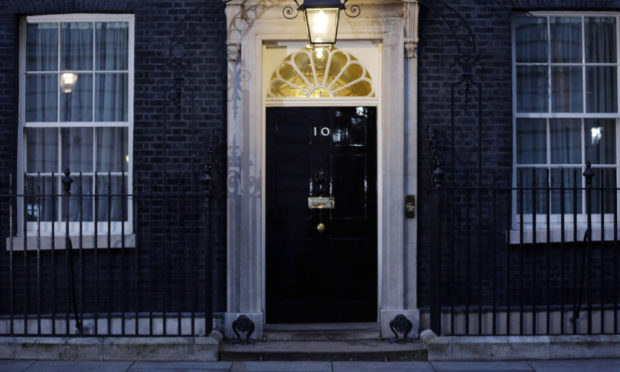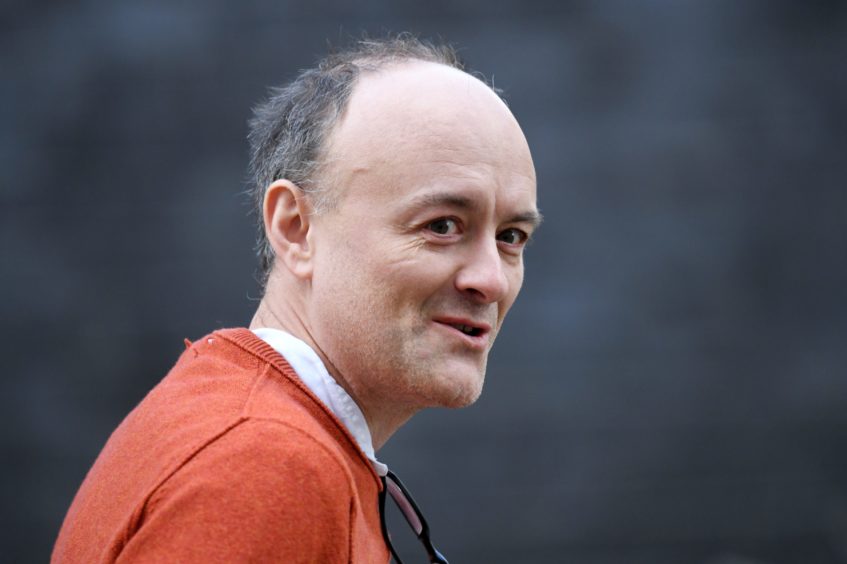Ministers have defended the decision to exclude members of the Scottish press from a Downing Street briefing on Boris Johnson’s Brexit trade deal.
The Press and Journal, along with reporters from the Scotsman, Herald and Daily Record were all excluded from the briefing in Number 10 on Monday – prompting a flurry of angry questions from Scottish MPs in the House of Commons today.
The briefing was set to be conducted by the prime minister’s lead Brexit negotiator, David Frost, and would have been a chance for journalists to probe and question the potential impact of Mr Johnson’s trade deal with the EU.
We are welcome to brief whoever we want, whenever we want.”
— Lee Cain, Downing Street director of communications
Political correspondents left in protest, however, when there was an attempt to exclude certain media outlets.
Mr Johnson’s director of communications Lee Cain, who was asked to defend the actions, said: “We are welcome to brief whoever we want, whenever we want.”
SNP MPs have reacted with fury after hearing that not a single representative of the Scottish press pack was invited.
Aberdeen South MP Stephen Flynn, speaking in the Commons, said: “My constituency, Aberdeen, is projected to be the hardest hit city in the entire UK as a result of Brexit, yet the Westminster correspondent for the Press and Journal was not invited, indeed no Scottish lobby journalist was invited.
“Does the contempt that this government shows to Scotland now extend to our press corps too?”
This is Chloe Smith MP, a Minister in the UK Cabinet Office, telling me that excluding journalists from Government briefings is protecting press freedom #DoubleSpeak pic.twitter.com/a4R0Nkdsw1
— Deidre Brock (@DeidreBrock) February 4, 2020
The question followed a similar point from SNP MP Alison Thewliss, who observed, “It’s difficult to report outside the Westminster bubble if the government doesn’t invite Scottish journalists in”.
Cabinet Office minister Chloe Smith’s response was unsympathetic, first implying that the exclusion was not an issue as Scotland is served by national broadcasters before issuing a long-winded defence that drew laughter on opposition benches.
She said: “We on this side of the House are a Unionist party. We think that that kind of practice should be more than possible to run across the nations of our wonderful country.
“We welcome close co-operation between the people and the press of Scotland and every other party of our UK which shall stay, I hope, united in that and all of that again is supplemented by what we’re offering here as technical briefings which I hope can be read as spreading across the union in that way.”
Analysis: A power play too far?
It may seem a little self-indulgent to report on journalists being excluded from Westminster briefings, but the issue is an important one and speaks to wider issues about the Government’s attitude to scrutiny, writes Dan O’Donoghue.
Since the election Dominic Cummings, the prime minister’s de facto chief of staff, and his director of communications Lee Cain have all but declared war on parliamentary journalists.
First was a change to the lobby briefing system – the twice-daily meetings where journalists can quiz the prime minister’s official spokesman.
The meetings had been a room in the Commons, now they’re in Downing Street. This raised concerns that it would give No 10 the power to refuse entry for any journalists they did not like – as has now been proved, twice.
“Trumpian” tactics
Last week, the wider press pack were excluded from a briefing on the decision to allow Huawei to run part of the UK’s 5G network and yesterday several journalists were excluded from a Brexit briefing.
The move is part of a pattern which has also seen Mr Johnson’s team boycott BBC Radio 4’s Today and ITV’s Good Morning Britain.
The “Trumpian” tactics may have been designed to divide journalists, bigger titles against smaller, London based again Scottish but instead it has succeeded only in uniting the press and exposing the issue to the wider public. A failure all round for public relations.

